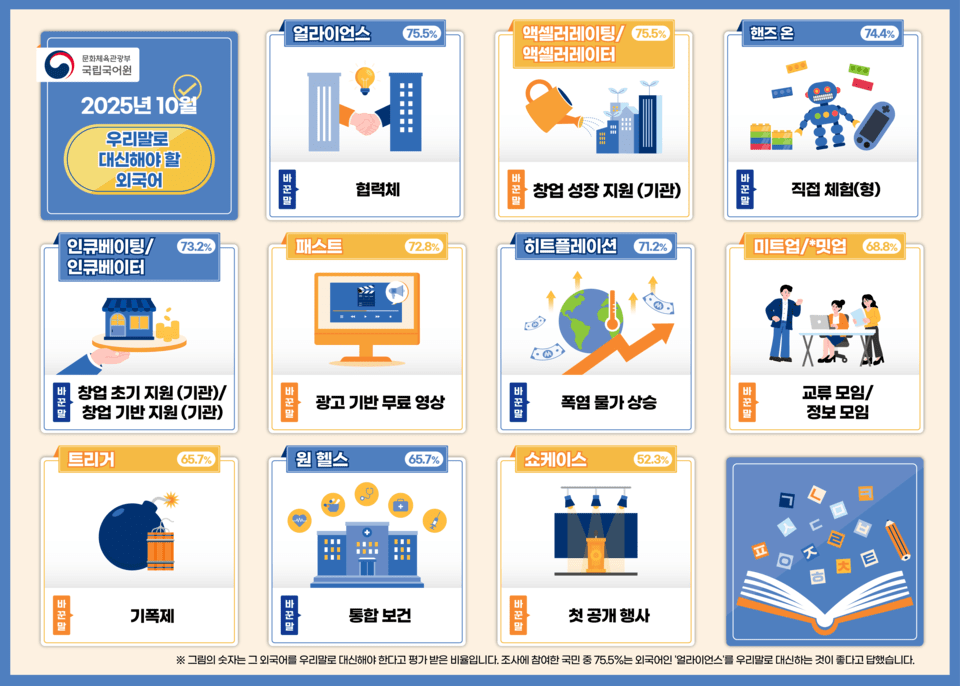The Ministry of Culture, Sports and Tourism (Minister Choi Hwi-young) and the National Institute of the Korean Language have refined 12 foreign words commonly used across our society into Korean terms that are easier for the public to understand. This decision aims to reduce the use of complex foreign expressions in public language and to facilitate easy communication in daily life.
After the deliberation and resolution by the Korean Language Advisory Council’s Korean Language Simplification Committee in October, the Ministry and the Institute decided to refine foreign words such as ‘alliance,’ ‘accelerating/accelerator,’ and ‘hands-on’ into ‘cooperative entity,’ ‘startup growth support/startup growth support institution,’ and ‘direct experience (type),’ respectively.

The alternative words were finalized after a draft was prepared by the ‘New Word Meeting,’ which included media professionals, academia, and the youth, and an acceptance survey was conducted with 3,000 people aged 15 and older. The survey revealed that 75.5% of respondents felt it was necessary to replace words like ‘alliance’ and ‘accelerator’ with Korean terms.
‘Alliance,’ which refers to a strategic partnership between organizations or companies, has been refined to ‘cooperative entity.’ ‘Accelerating’ refers to the process of supporting startup companies or prospective entrepreneurs, while ‘accelerator’ refers to the institution that provides such support, both of which have been changed to ‘startup growth support’ and ‘startup growth support institution,’ respectively.
The terms ‘hands-on’ frequently used in the fields of startup and vocational education, and ‘incubating/incubator’ have also been replaced with Korean equivalents. ‘Hands-on,’ meaning learning through practical experience, has been refined to ‘direct experience (type),’ ‘incubating’ to ‘initial startup support,’ and ‘incubator’ to ‘startup foundation support institution.’ The Ministry has provided multiple alternatives for each word to ensure they can be used naturally in various situations.
Going forward, the Ministry and the Institute plan to continue reviewing and replacing foreign terms closely related to public life to ensure the easy establishment of simplified expressions in public language. They also intend to actively promote the refined Korean terms through SNS and other online channels, encouraging their use in media and public institutions.
A Ministry official stated, “Replacing difficult foreign terms with Korean words in everyday and administrative language is more than just translation; it’s essential for accurate communication between the public and the government,” adding, “We will continue to strive to create a linguistic environment that resonates with the public.”